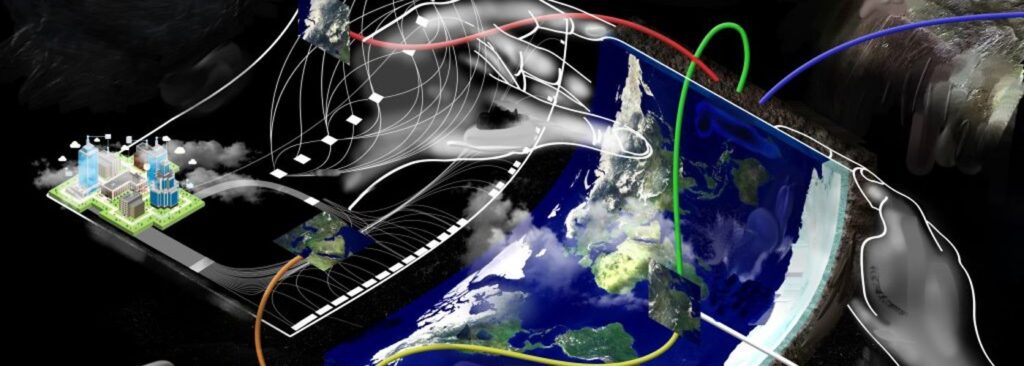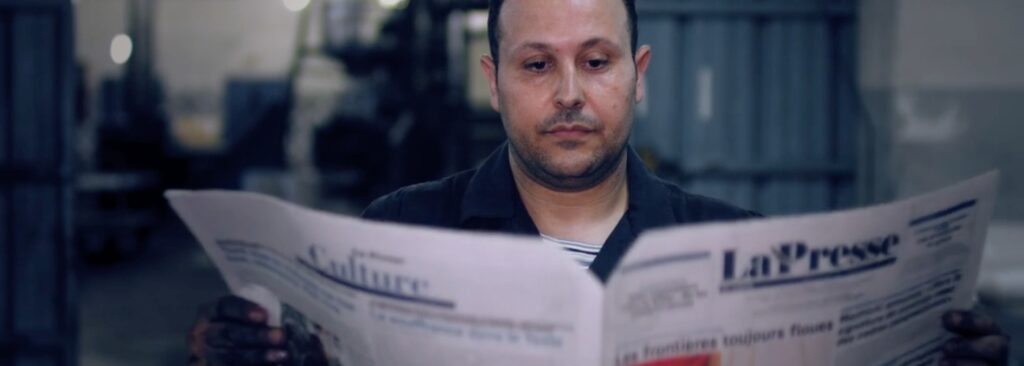Tackling fake news in Tunisia
Fake news in the press and on social media is a growing problem in Tunisia. With support from Hivos, the National Union of Tunisian Journalists (SNJT) set up the fact-checking platform Tunifact in 2021. “Politicians all over the world love to lie, but in Tunisia they really love it,” says Arwa Kooli, editor-in-chief of Tunifact. “We want to tell people the truth so they can make informed decisions.”
Tunifact is part of a larger project that Hivos and the SNJT started in 2020 to promote freedom of expression and the exchange of information in Tunisia, where there are many restrictions on journalists doing their jobs.
As Arwa explains, “After the revolution of 2011, Tunisia became a free country where everyone could express their opinion. Yet all the governments so far have tried to control the media. Journalists are still being arrested for simply doing their job. Since July 25, 2021, public broadcasters no longer invite opposition members or guest speakers with different opinions on their shows. You don’t see any public discussion about what’s happening in the country. It’s alarming that the political landscape is so circumscribed right now, allowing the president to exercise even more power.”
The SNJT tries to improve the working conditions of journalists and increase their freedom of expression. For example, last April they organized a strike to protest the one-sided political debate offered by public broadcasters.
Political fake news in abundance
Like in many places in the world, fake news is a major problem in Tunisia. Especially on social media, where people say whatever they want and it’s hard to tell what’s true and what’s false. “Because we go from one political crisis to another here, there’s lots of fake news about politics and politicians. That will peak in December, when we have elections. We also see a lot of fake news about the pandemic, vaccinations, and the economy, which is in dire straits,” Arwa says.
The work of Tunifact
Tunifact is a fact-checking unit that deconstructs fake news and misleading information. The unit was launched by SNJT in early 2021 and employs four fact-checkers. “Every day we monitor traditional media and social media for news that we believe is false or misleading. Then we discuss how we’re going to unmask it. We compare official sources with as much other information about the news as possible, and contact scientists and experts. In the end, we label it with one of four categories: correct, fake, misleading or inaccurate. Then we publish the fact-check on our website and social media,” Arwa explains.
The great thing about honest journalism is that it seeks out and tells the truth.
With its Fact School, Tunifact is also committed to educating people about fake news. Using articles and videos, it gives tips and advice about what people can do themselves if they don’t trust certain news. For example, by comparing items with other news sources and never sharing anything unreliable.
40,000 Facebook followers
Tunifact now has 40,000 followers on Facebook, and this number continues to grow. It’s the best-known and largest fact-checking platform in Tunisia. Many other platforms work with volunteers, but Tunifact is a professional unit with a paid team and its own office.
Arwa is happy with all the positive reactions and messages that Tunifact receives on the platform and social media. “Many people are very grateful for the work we do. But of course we also get a lot of negative comments. Or humorous ones. Recently someone wrote, ‘What does it matter if this news is fake? I want to believe in this beautiful lie!’”
Freedom of speech
“The great thing about honest journalism is that it seeks out and tells the truth,” says Arwa. “When I was eleven, my grandmother wanted me to become a judge. But I didn’t want to judge people and decide if they should go to jail. I wanted to be a journalist and reveal the truth.”
Arwa has worked for 10 years as a journalist and has also taught journalism at university level and done research on fact-checking. “I’ve been the editor-in-chief of Tunifact for six months – a very honorable job, and an important one, because if we get caught in a fake news bubble, it can have dire consequences. For example, people almost died because they used traditional medicines touted on Facebook to treat Covid-19. So an important step towards achieving freedom of expression is if people can base their opinions on facts and make informed decisions,” Arwa concludes.







